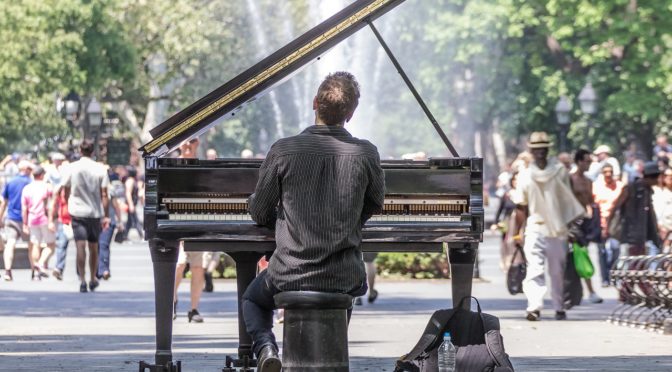by Bruce Fife, International Vice President and President of Local 99 (Portland, OR)
At the 100th Convention in June of 2016, a resolution was put forward by the Canadian Conference, requiring that the AFM implement an officer training program, with a “… focus on membership retention and recruitment, as well as general office procedures, as a means of combating declining Federation membership.”
This was an affirmation of what many officers and staff had been discussing for some time. AFM President Ray Hair appointed me to chair the committee tasked with creating this program. Joining me in this endeavor are Vice President from Canada Alan Willaert, AFM IEB Member Tina Morrison, with staff participation from Assistant to the President Ken Shirk, Symphonic Services Division Director Rochelle Skolnick, and International Representative Barbara Owens.
The last AFM-sponsored training was convened in the late 1990s, early 2000s. I attended one of the four-day retreats that took place at the George Meany Center in Silver Spring, Maryland. I recall leaving inspired, educated, and exhausted, with new friends, colleagues, and mentors, and most importantly, with a better understanding of the AFM and unions in general. I returned to Portland, ready to take what I had learned and put it into action at Local 99 (Portland, OR). In retrospect, I believe much of
Local 99’s growth, strength, and ingenuity came as a result of that focused training.
Our committee now wants to take the best practices and teachings from the previous instruction sessions, and build on them, with the goal of providing an even better educational experience and set of tools to ensure success in our work and the growth of our locals. In building this program, we have taken a three-prong approach that we believe will provide the highest level of training in the most cost-effective manner.
Phase 1
Phase 1 will be online webinars. These will be a series of one-hour, interactive, open invitation programs that deal with the wide range of issues officers face when running a local. Topics will include:
• The nuts and bolts of building a better union
• AFM local compliance
• Filing AFM reports
• Government reporting
• Bylaws
• Structure of the AFM
• Member services
• Communicating with members
• New member orientation
These webinars will all be posted on the
AFM.org website after the “live” presentation and will continue to be a resource, available 24/7 to all officers. International Representative (IR) Barbara Owens is working with the other IR’s, staff, and officers to build and present these webinars.
Phase 2
Phase 2 will be two-day, intensive training immediately prior to each of the five regional conferences. (The first was scheduled before the Eastern Conference in April 2017.) At these retreats, issues that need face-to-face interactive training will be presented by a number of AFM staff and officers. Topics will include:
• AFM electronic media agreements
• Intellectual property
• Building allies, networking, and using social media
• Grievance and arbitration
• Duty of fair representation
• Internal organizing, orientation,
committee roles, and bargaining prep
• Understanding and navigating “right
to work” laws
Intensive is the right word, as officers will come out of these two-day sessions with a host of answers, along with a slew of new questions, informing and leading to the next level of engagement. They will also glean a new awareness about solving problems and dealing with the issues officers face on a daily basis.
Phase 3
Phase 3 will be a “by invitation,” semi-annual, three-day retreat in Madison, Wisconsin, at the University of Wisconsin School for Workers. This will be labor and leadership “big picture” training. While the specifics of the program are still in development with the university (first program slated for July 2017), topics may include:
• Labor/AFM history
• Leadership and diversity training
• Duty of fair representation
• Strategic planning/problem-solving
Our goal is to have participants emerge with a clear understanding that, as local representatives, they are leaders in the union business, as distinct from leaders in the music business. They will gain appreciation for member-driven collective action.
One of the most important takeaways of my training in 2002, and what we hope to instill in this new group of officers, is the building of relationships and a camaraderie that can be developed with and among each other that extends beyond the class itself, leading to a more cohesive Federation.
As I look around the Federation, many of the colleagues that I spent time with at the Meany Center in 2002 are current leaders within the AFM, and people that I can still reach out to for information and support when challenges emerge. That ability, trust, and mutuality came as a direct result of the training I received and is a key part of the outcome that we want to impart to this new generation of leadership.
If you are a local officer and have questions about these training options, feel free to reach out to your International Representatives. If you are a member, we hope you understand the value and importance of this work and will support and encourage your local officers to participate in upcoming training. Lastly, if you are a member wanting to explore a union post, contact me and let’s talk.


